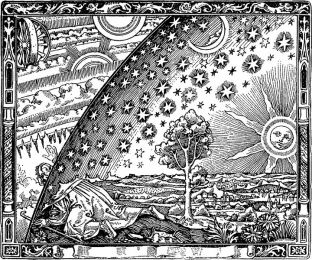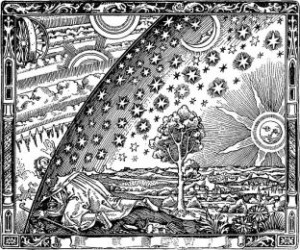 We experience it all the time. Leicester City lifts the trophy and millions rejoice.
We experience it all the time. Leicester City lifts the trophy and millions rejoice.
England beats Australia in the rugby and strangers introduce themselves to me with the words "Three Nil!" (To which I respond, "Eddie Jones, what a genius!")
The Euros come on TV and the whole nation is on tenterhooks.
What's going on? It's all about champions, as this extract from my book, 321, explains. (Get the book here, and as an e-book for just 99p).
Champions
"Who do you support?" they ask. "In the football, who's your team?"
"Umm," I hesitate. I've been here before. "Well I'm Australian but I lived for a while in Highbury, north London. So I suppose I follow Arsenal. At a distance. Sort of."
"Arsenal?! We STUFFED you on Saturday!" they beam.
"You did?" I look at their shirt. Yep, it’s a dead ringer for the shirts worn by eleven men who, last weekend, bettered another eleven men neither of us have met. But that's not the way it’s ever phrased. It's always "We beat you." When our champions win, we win.
At that point I want to protest: "Who's we? I know where you were last Saturday. You were glued to the telly, part-man part-sofa, bellowing advice at the greatest athletes in the world. I'm not sure shrieking "Referee!!" every 90 seconds helped the cause. But if you want to claim victory in the name of your champions, who am I to sneeze on your custard?" That’s just how champions work: they win, you celebrate.
During the London Olympics, the Poet Laureate, Carol Ann Duffy, wrote a poem to capture the nations’ feelings about Team GB. She wrote: “We are Mo Farah lifting the 10 000m gold... We are Sir Chris Hoy... We are Nicola Adams.” Of course none of us have made the sacrifices these athletes have made. And if you asked us to compete we wouldn’t have a hope. (Speaking for myself, the most aerobic workout of my day is brushing my teeth). But when Mo Farah wins, the nation celebrates. He is Britain’ champion and his victory is their victory.
Perhaps the epitome of “faith in our champions” is seen in the football transfer market. Here managers, coaches and scouts sift the world’s greatest leagues for that one miracle maker. Pundits speculate, fortunes are spent, millions of fans hold their breath and it's all founded on the myth of the one man.
The myth of the one man goes something like this: Somewhere, out there, is a player of such extraordinary talent that no price is too absurd, for – so the legend goes – if we have him, then everything will change. He will galvanize the team. He will win every game. He will turn our fortunes around. This man is out there and we must have him.
Of course it's a myth, but imagine it was true. Imagine your team actually found "the one man." And in spite of the naysayers, you'd always believed in him - he'd always been your guy. As the season unfolds, he scores the winner in every game propelling your team up the league, through the cup, all the way to Wembley. And there you are at the FA Cup final. His last minute double strike snatches victory from the jaws of defeat. The noise is deafening as he runs over to your end of the ground, arms outstretched. He’s mouthing the words “For you... It’s for you.” There you are amidst the deafening roar. How do you feel?
Remember that you have not assisted in this triumph. In spite of your high quality coaching from the stands, none of it has affected the outcome. Nonetheless, how do you feel? “Over the moon” is the usual expression. But that doesn’t capture it. We're ecstatic – beside ourselves with joy. We jump, we shout, we sing, we hug complete strangers just because they too share a connection with the one man. Victory, camaraderie, euphoria – this is how Christians feel about Jesus.
Jesus our Champion
Jesus is God's eternal Son but he became "the one man" to turn our fortunes around. From the very beginning of the Bible, stories about “the one man” were circulating. He was going to join Team Earth and defeat our enemy in a fight to the death (see Genesis 3:15). Throughout the Old Testament, hype surrounding “the one man” built to epic proportions. Then one day, as a wild and woolly man – John the Baptist – was giving people a ritual "washing", we got to see our man.
In a scene that opens all the biographies of Jesus (the Gospels), we see him taking a bath – a.k.a. getting baptised. This was the ceremony where Jesus identified with Team Earth publicly and irreversibly. It was like the footballer's official signing for the club – this was Jesus publicly wearing our colours. The rest of the Gospels reveal his “wonder-season”. He took on the forces that constantly defeat us: temptation, sin, evil, disease, death. These powers always get the better of us, but not Jesus. He “played a blinder”, living up to all the hype.
Then, at the end of his life, we see how deeply our Champion identifies with us. On the cross he took responsibility for everything that belongs to us – even our sins and the godforsaken death they deserve. As he died, the crowd fell silent, wondering if the hype was misplaced. Yet, just when they thought it was all over, Jesus scored a decisive winner against the ultimate “baddy”.
“Death is the final enemy” wrote the Apostle Paul (1Corinthians 15:26). In billions of matches, death has never lost a battle. Without exception it sucks us down into the grave. But Jesus ran headlong into that pit and smashed a hole right through it. On Easter Sunday he burst through to the far side as the ultimate victor. Then, like the triumphant footballer, running to his supporters, Jesus has his arms outstretched to the world and he cries: “For you! This is for you!”
A Christian is someone who has found themselves swept up in this story. We have recognised our place in Team Earth. We have owned our failures and faced the certainty of defeat. But, more than this, we have seen Jesus. We have heard his claims to be the long-promised Champion. We have witnessed his life, his death and his resurrection. We are persuaded that he is who he says he is. And now the penny has dropped: If he is our Champion then his victory is our victory. We know we look like "a bunch of losers" and we know we haven't expended a calorie of effort in the victory. Nonetheless we sing like we've won because, though Jesus our Champion, we have:
Thanks be to God, who gives us the victory through our Lord Jesus Christ. (1 Corinthians 15:57)
.
Get 321 here, and as an e-book.










